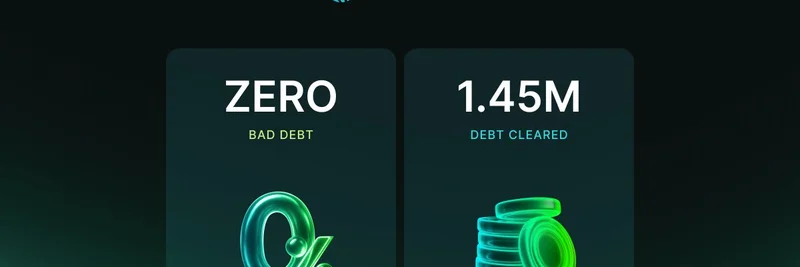In the fast-paced world of crypto, where prices can swing wildly overnight, having a reliable lending platform is a game-changer. That's exactly what Jupiter Lend, built by the teams behind Jupiter Exchange and 0xFluid, just demonstrated. In a recent tweet, they announced a major win: zero bad debt during a bout of market volatility, with their liquidation engine handling $1.45 million in liquidations without a hitch. If you're into Solana's ecosystem or trading meme tokens, this is worth paying attention to.
What Happened and Why It Matters
Market volatility—think sudden price drops or spikes—can wreak havoc on lending protocols. Borrowers might find their collateral suddenly underwater, leading to liquidations where the platform sells off assets to cover loans. If things go wrong, it can result in "bad debt," which is basically unrecoverable losses that hurt the platform and its users.
Jupiter Lend's update highlights their system's robustness. They cleared over a million bucks in liquidations seamlessly, keeping everything "SAFU" (a crypto slang term popularized by Binance, meaning "funds are safe"). This isn't just bragging; it's proof that their tech holds up under pressure, which is crucial in DeFi (decentralized finance) where trust is everything.
For context, Solana has been a hotbed for meme tokens like those inspired by pop culture or internet jokes. Traders often use lending platforms to leverage their positions—borrowing against holdings to buy more. A platform that avoids bad debt means less risk of systemic failures, making it safer for everyone dipping into these volatile assets.
Breaking Down the Liquidation Engine
At the heart of this success is Jupiter Lend's liquidation engine. Think of it as an automated watchdog that monitors loans in real-time. When a borrower's collateral value drops too low (below a certain threshold, often called the liquidation ratio), the engine steps in to liquidate, selling the collateral to repay the loan.
What sets Jupiter Lend apart? Their design gives borrowers a bit more breathing room—mentions in replies suggest a 5% buffer that allows users a chance to add more collateral before full liquidation. One user shared how they lost everything on another platform but praised Jupiter for this feature. It's user-friendly tweaks like these that can make or break a protocol in choppy markets.
Community Reactions and Broader Implications
The tweet sparked positive vibes in the replies. Folks celebrated it as a "small victory on a bad day," with shouts like "JUST USE JUP" showing community loyalty. There were questions too, like one about negative APY (annual percentage yield), which happens when borrowing demand outstrips supply, leading to fees for borrowers. It's a sign of a healthy, in-demand market, but it underscores the need for clear education in DeFi.
For meme token enthusiasts, this stability is golden. Meme coins thrive on hype and quick trades, but they crash hard too. A lending platform that weathers storms without bad debt means you can borrow against your SOL or other assets to chase the next big meme without fearing platform-wide meltdowns.
Looking Ahead in Solana DeFi
Jupiter Lend's milestone isn't isolated—it's part of Solana's growing DeFi scene, where speed and low fees attract builders and users alike. If you're new to this, start by checking out Jupiter Exchange for swaps, then explore lending to earn yields or leverage up.
In a space where "rug pulls" and exploits make headlines, stories like this remind us that solid engineering wins. Whether you're a lender earning passive income or a borrower fueling your meme token plays, Jupiter Lend just raised the bar for reliability. Keep an eye on their updates; with volatility always lurking, platforms like this are your best bet for staying SAFU.


